The Volunteers Fighting Greece’s Intensifying Wildfires
As climate change brings unprecedented levels of heat and drought, the country’s unpaid fire brigades are bracing for the worst in the absence of state support.
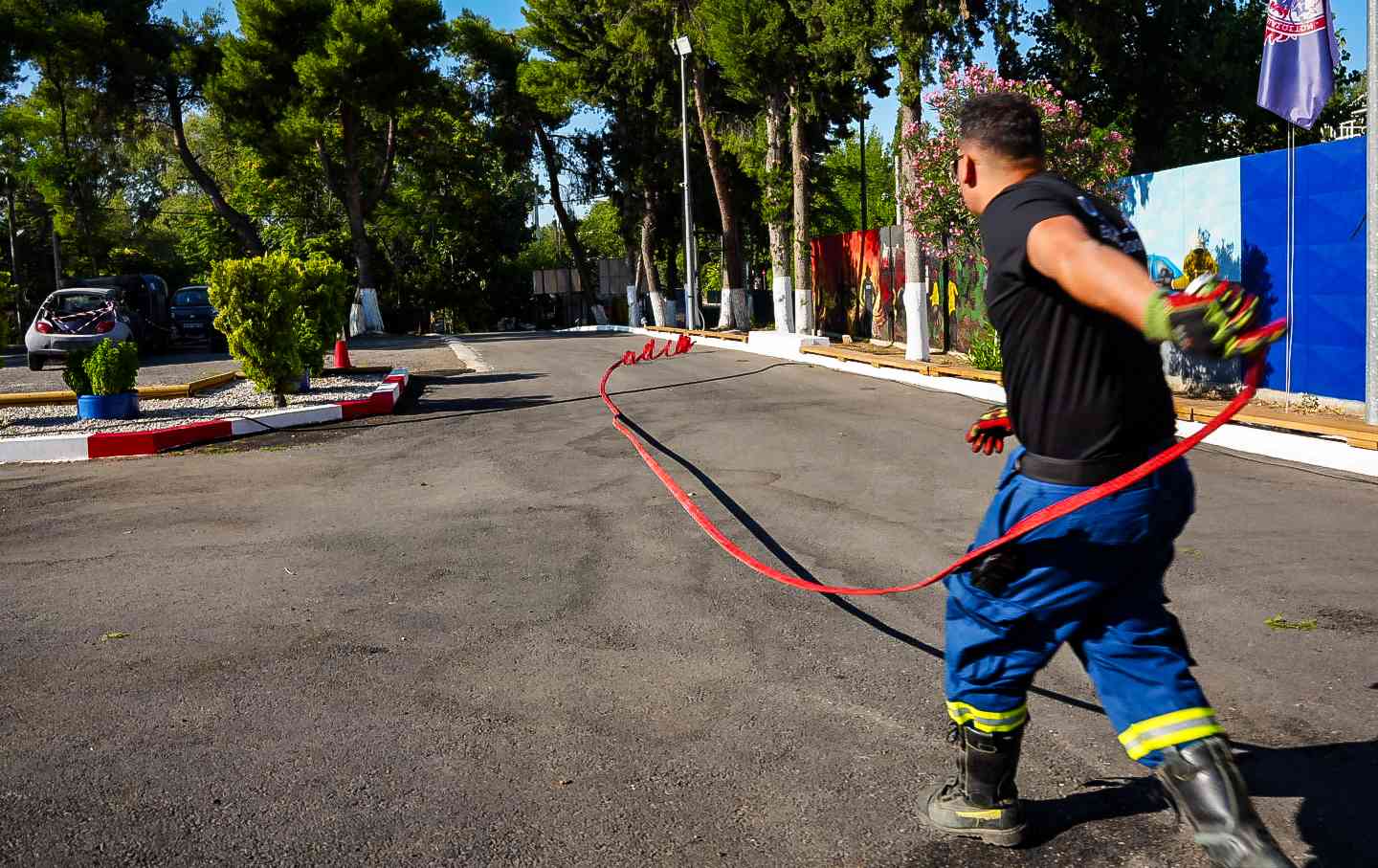
A volunteer in Greece unrolls a firehose in preparation for a wildfire.
(Maggie Stewart)Manos Papadakis was 17 when a flight changed his life. It was July of 2018, and he was traveling to the Greek island of Kos with his friends. Looking out his window during takeoff, he was shocked by the horror below. Mati, a village east of Athens, was on fire.
Papadakis recalls watching plumes of smoke fill the sky, resembling a nuclear explosion. The blaze would ultimately kill 104 people, making it the deadliest wildfire in Greece’s history. Since then, wildfires in Greece have only gotten worse.
The summer of 2024 was Greece’s hottest on record, and this year, temperatures are again expected to be higher than normal. As climate change brings unprecedented levels of heat and drought, Greece remains on the front lines of increasingly intense wildfires. Fire seasons are longer, and the fires are harder to extinguish. In 2023, Greece experienced the largest single wildfire to scorch Europe since 1980.
Fires like these are testing the country’s firefighting mechanisms and aging infrastructure. The firefighters managing them are bracing for the worst: They know that this is just the beginning.
After seeing the blaze in Mati, Papadakis decided to become a firefighter. In 2019, he joined the Volunteer Forest Fire Rescue Team (abbreviated to OEDD in Greek), a volunteer station in the Ekali suburb north of Athens. Funding constraints that began with Greece’s economic crisis more than a decade ago have left the country reliant on the services of roughly 5,000 volunteer firefighters like those at OEDD to help tame these growing fires.
Working alongside state services, these volunteers have become a mainstay of Greece’s fire season, but they say they don’t have all the resources they need. The local municipality owns the land the station stands on and pays for the water in their trucks, but they rely on donations for most of their equipment.
At a time when the United States is slashing funding for climate mitigation initiatives created by agencies like the US Forest Service—which plays an integral role in US wildfire prevention and response—people are looking for a way forward. Across the ocean, in Greece, the work of the OEDD serves as a valuable model as people take the fight against climate change into their own hands. As the climate crisis worsens around the world, this kind of steadfast dedication and resilient adaptation will prove increasingly vital.
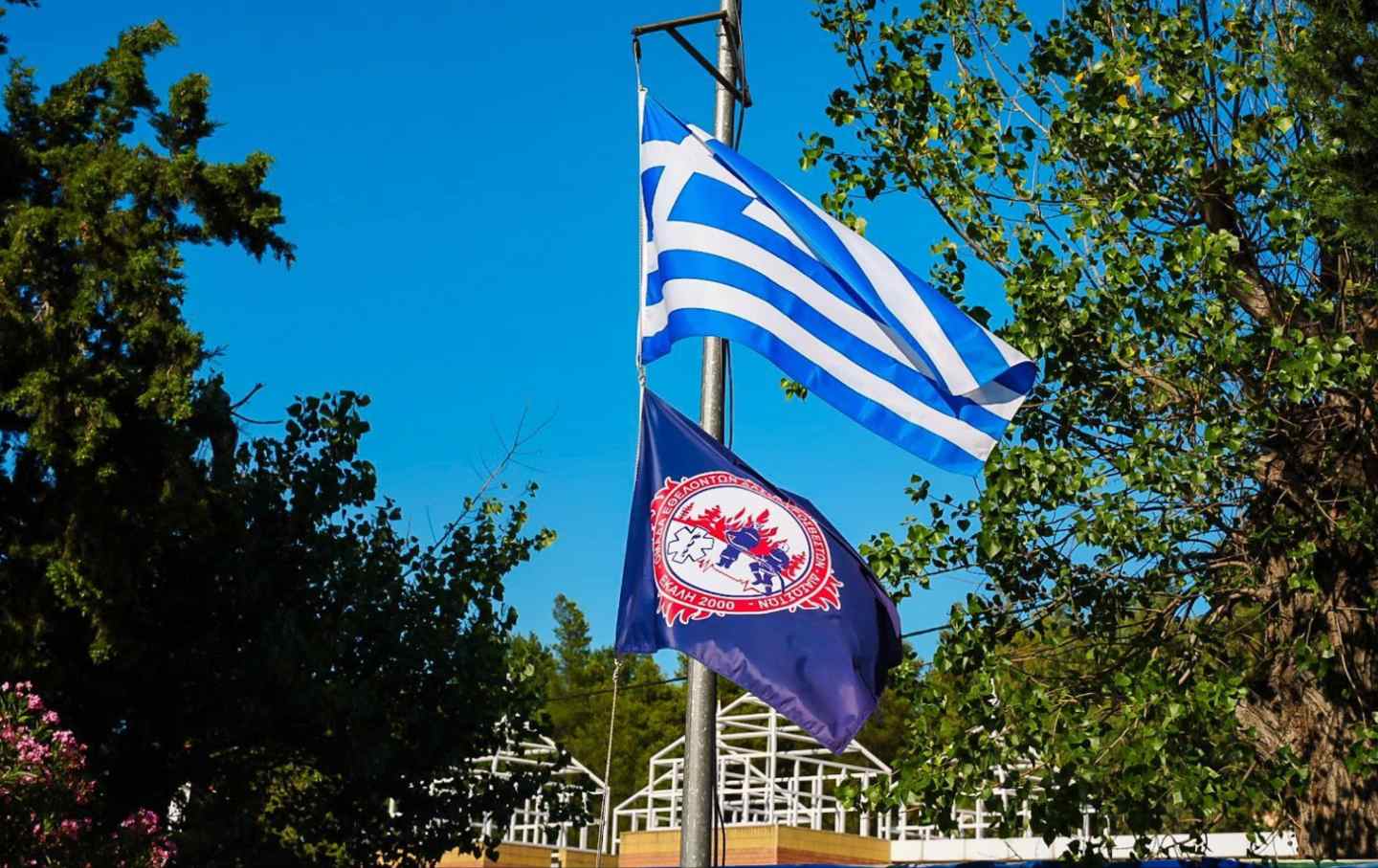
In 1997, a teenage Phoevos Bartsiokas, a founder of the station, watched a fire scorch his neighborhood while he was out riding his bike. Three years later, he started the OEDD volunteer team, determined to fight back. He gathered up some friends to man a fire truck and water tanker that the municipality owned, but could not staff, he said. It marked the start of OEDD, which was formalized as a nonprofit in 2007.
In OEDD’s early years, Bartsiokas said the Hellenic Fire Service treated the volunteers as a nuisance rather than a help. In the midst of the financial crisis, however, the state began to rely on them. The closest state-run station is 10 kilometers away. Today, OEDD has six trucks and over 50 active volunteers who spend their days as university students, translators, airport employees, and musical theater singers.
Papadakis planned to join Greece’s professional firefighting service once he turned 18, but when the Hellenic Fire Academy implemented a university-level test for enrollment—requiring nearly perfect scores in writing and math—Papadakis knew his dyslexia would make this impossible.
Now, 24 and an OEDD crew commander, he is responsible for assessing incidents, giving orders, and ensuring the safety of his team. Papadakis has been at the station for six years and is grateful to be a volunteer rather than a professional firefighter. “The emotional reward to help the people without taking something in return is something amazing,” he said as he sat in one of the station’s old fire trucks. “It’s the biggest reward.”
The quality of the team’s equipment does not reflect the magnitude of the threat they are under. Their main truck is a 1985 model from Germany. Its wear is obvious, but so too is the care they have shown it for decades. Across the station lot sits the team’s newest and most prized possession, a bright red fire engine they recently bought from Switzerland.
“It’s like you are in the Middle Ages, and suddenly you bought a Ferrari,” Papadakis said with excitement. This Ferrari, however, is from 2005. “It’s our new star,” he said.
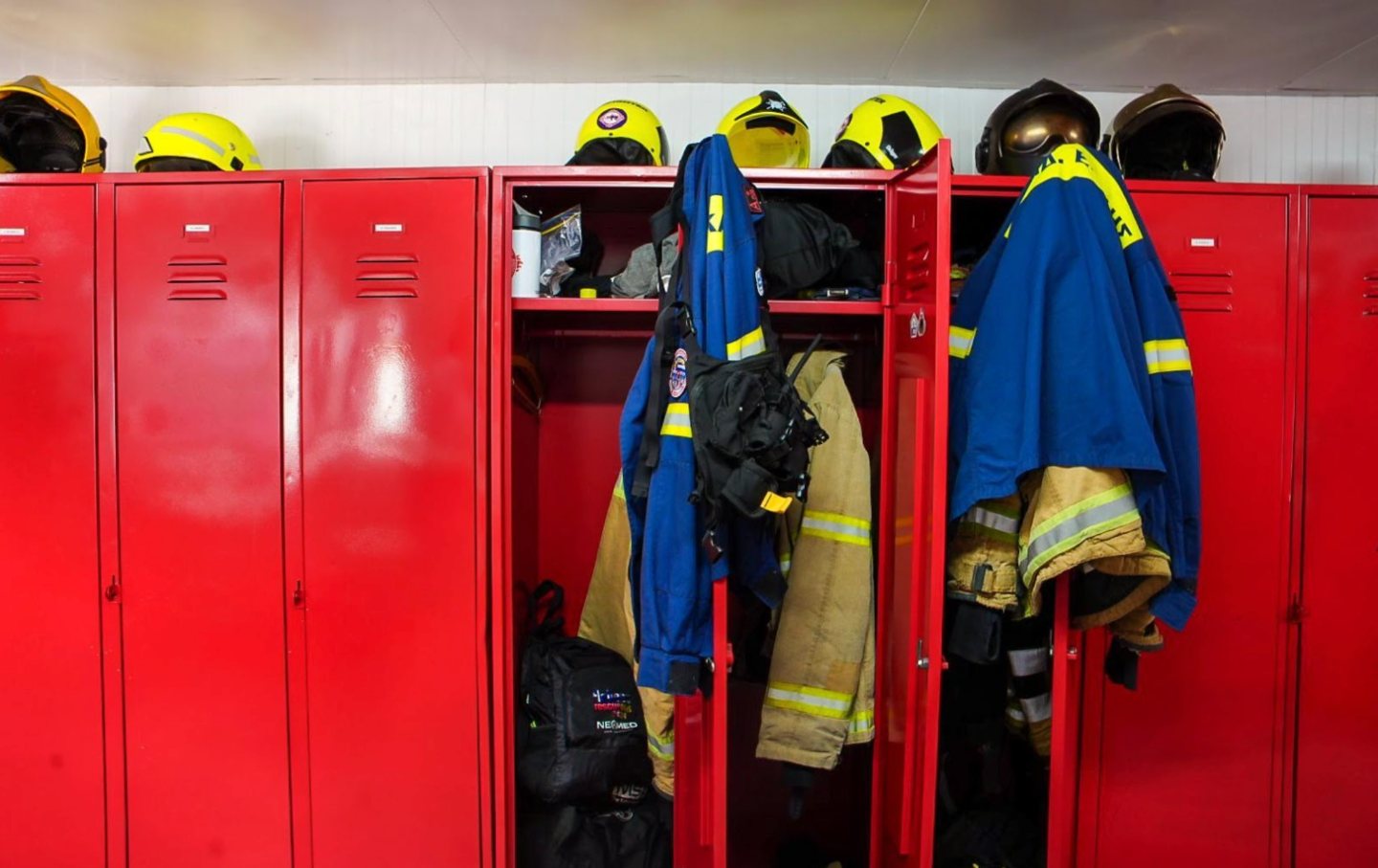
Walking around the back of the engine, Papadakis pulled up an iron hatch revealing an operating panel labeled in German. He and his team started translating the labels into Greek, but have struggled to understand the function of each of the dozens of buttons, since the panel of the 40-year-old German truck has only three, all of which they installed themselves.
Papadakis stepped away from the truck and into the storage container that holds each volunteer’s uniform and personal equipment. While on shift, Papadakis’s bright red locker is left ajar and half-empty. He leaves most of his gear in the trucks, ready for his next call. He reached in, pulling out a brand-new red-and-yellow wildfire helmet, turning it over in his hands. “A gift for me. To me,” he said with a proud smile. He saved up and bought it three months ago for €350. Most of the other gear, provided by the station, was far older.
Next to the lockers, a row of thick, soot-covered structure fire uniforms purchased from the UK hang on a silver rack. Some are 20 years old. In professional fire departments worldwide, gear is replaced every five to 10 years to meet safety standards. Since OEDD volunteers don’t get routine gear upgrades, they are reliant on hand-me-downs or left to purchase their own. While a law passed in 2020 requires the Ministry for Climate Crisis and Civil Protection to provide volunteers with personal protective equipment, the uniforms have not yet arrived.
Regardless of their aging equipment, the team keeps fighting—a testament to their scrappy resilience. On a Sunday evening, sirens filled the air. A fire truck flashed around the corner, and the OEDD team hopped out, sporting mismatched uniform pants and helmets in varying shades of yellow. They rushed to the scene of a two-car crash: one car on its side, two passengers trapped. With their phones aloft, a crowd of spectators pushed up against the safety tape for a better view. One volunteer shouted orders; two more laid out tarps and tools. Metal sizzled as the firefighters sliced through the flipped car’s roof with an extrication cutter. They peeled it back and converged with a stretcher.
They pulled the dummy out and placed it on the ground with care. The crowd erupted in applause. The team posed by the now roof-less car as a photographer emerged from the sea of onlookers.
It was the station’s third consecutive annual Open Day, an event for the team to recognize its supporters and for the community to get to know its station. This year, the team was celebrating its 25th anniversary. Kids in Paw-Patrol T-shirts and face paint ran through the station’s lot, toy firetrucks and souvlaki in hand. Friends, family, and neighbors of the station sipped beer as they chatted with the volunteers.
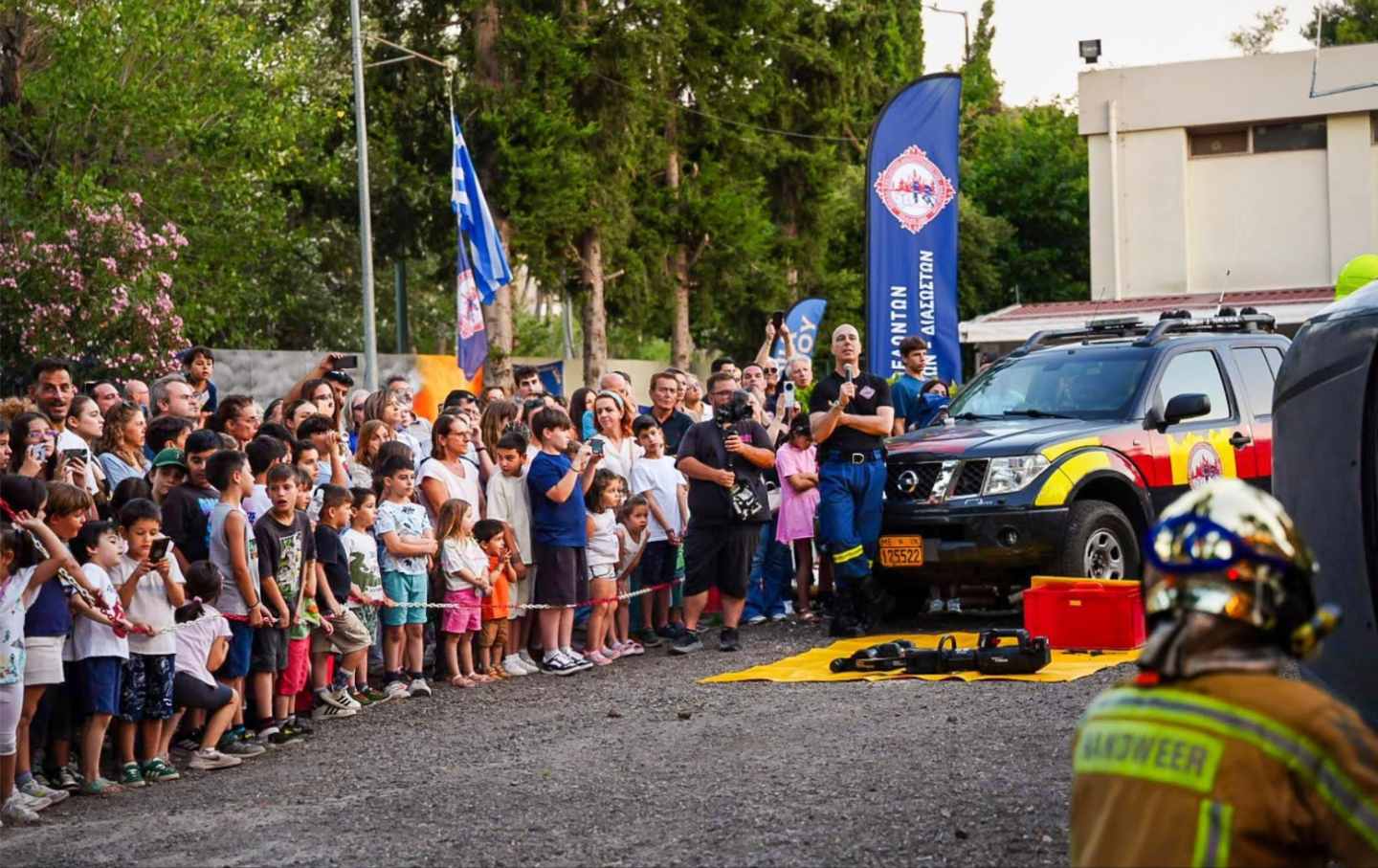
Through years of insufficient state instruction, the OEDD team has developed its own training programs and curricula to involve these types of crucial simulations. The following week, those who hadn’t participated in the demonstration would recreate it, training on the same mangled cars left sitting in the lot. They would hold a third training session in a few days: No piece of the equipment they buy goes to waste.
At 11 pm in July, the OEDD team returned to its station after a long, hot day battling a South Athens wildfire. Some volunteers clustered to debrief, while others trained, or exercised with a volunteer gym trainer in the back corner of the lot. Only four volunteers were on shift, but over 15 people were at the station.
Bartsiokas looked out at his team and said the thing that makes him proudest is watching “people evolve” over the years. “If you look at him, I would never say he’s a firefighter,” Bartsiokas laughed, describing Papadakis with a smile. Though he says he looks like “a geek,” Bartsiokas admires Papadakis’s dedication to his training. “He knows more technical stuff than I do,” Bartsiokas said.
For Papadakis, pyro-meteorology is a hobby. He studies wildfire behavior and weather patterns in his free time. Fire fighting has taken over many parts of his life, and his Instagram feed is filled with pictures of the fires he has fought.
In 2018, Bartsiokas was on the ground, fighting the same Mati fire that had inspired Papadakis to join his ranks. “It’s like someone is shouting from hell,” Bartsiokas said, searching for the words to describe the reality of a megafire. A fire that big, he explained, creates a dynamic microclimate that can be extinguished only by running its course. “What’s the strategy? I don’t know,” he admitted. “You can’t fight this.”
Confronted with these unstoppable fires, experts are calling for a shift toward prevention over suppression strategies. “We need to do things and activities in the forest to prepare them for summer, in order for them to be more resilient,” said Panagiota Maragou, head of Conservation at the Greek Branch of the World Wildlife Fund. The organization recently prepared a legislative proposal calling for forest management and prescribed burns during the off-season to minimize fire risk.
Still, Bartsiokas dedicates his life to this formidable fight. “Greece can become a very nice example of people caring about their country and offering their service to the community,” he said.
The volunteers’ resilience and dedication are all the more impressive considering the structural constraints and red tape they face in their efforts to help their fellow citizens and protect their land.
In 2020, Greece established the National Crisis Management and Risk Response Mechanism to help contend with forest fires and other emergencies. This gave volunteer firefighters the right to help extinguish structure fires and respond to traffic accidents—in addition to their ongoing work fighting wildfires—provided that they received formal training. But five years later, the state still lacks the necessary training infrastructure to fully implement the legislation.
Even as the Greek government calls on volunteer firefighters to fill essential roles in its wildfire response, volunteers say the state fails to provide the equipment, training, and legal protection they need to do their jobs safely.
Ten years ago, a car wrecked 100 meters from the OEDD station. The closest Hellenic Fire truck was 25 minutes away, and the paramedics said the trapped passenger would die within five if she wasn’t freed. But, legally, OEDD was not allowed to engage.
Giorgios Dertilis, OEDD’s president, called the Hellenic Fire Service and explained the situation. The answering officer asked if Dertilis knew what to do and how to do it. Dertilis said yes, and, because of their long-standing trust and rapport, the officer gave them permission to intervene. Although it was still technically illegal, OEDD felt confident that a direct order from the Hellenic Fire Service would protect them in court.
On many Greek islands, there is only a volunteer fire station, meaning there is no professional station to give such an order. If a house catches fire or a car crash occurs, volunteers could be sued or incarcerated for any property damage or injuries incurred during their intervention.
Even some of the articles that have been activated have not been effective. The Civil Protection Ministry has provided volunteer training opportunities—two theoretical workshops and one practical one in five years.
The station continues to conduct its own training. Some members of the team traveled recently to learn how to fight electrical fires, and last year they hosted Greece’s first-ever Hellenic Rescue Days event, bringing together firefighters from around the country to train together—officers from the Hellenic Fire Service came to learn from the volunteers, Dertilis said.
Because of these bureaucratic delays and severe legal risks, volunteer fire stations across Greece came together in 2021 to establish the Panhellenic Federation of Voluntary Forest Protection and Firefighting Organizations.
Dertilis, who also serves as the Federation’s Head of Public Relations, says this unified front is essential for putting greater pressure on the ministry to better address the needs of volunteer firefighters and allow for their further involvement in shaping laws that affect them.
Papadakis feels that these legislative obstacles are representative of how the service that volunteer firefighters provide is undervalued and overlooked. “We exist and we don’t exist,” he said, “at the same time.”
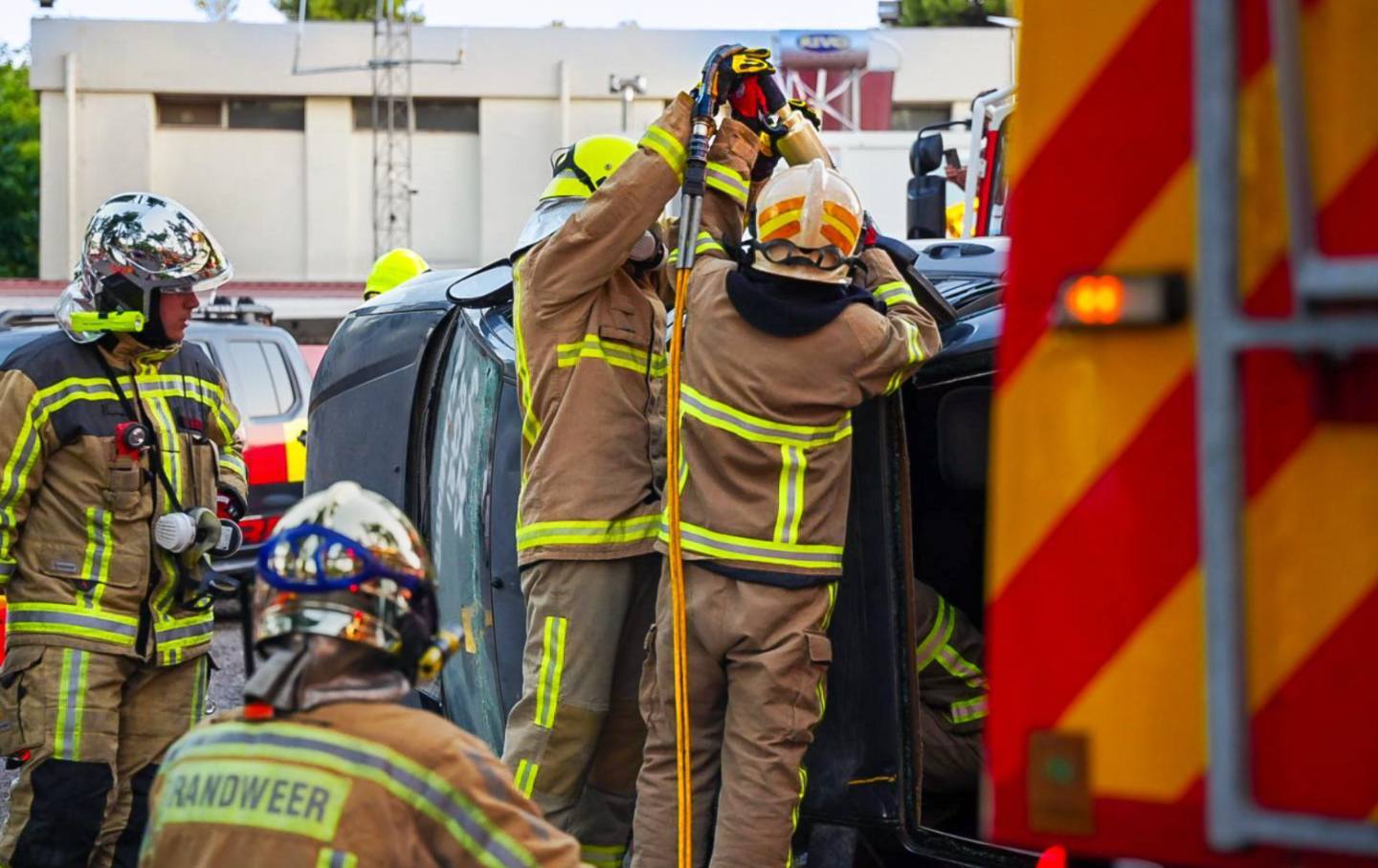
Volunteer firefighters are not alone in this struggle. Professional firefighters with the Hellenic Fire Service also face challenges in dealing with insufficient equipment, training, and funding.
At 22 years old, Evi Mitsiouli serves as a chief for the Hellenic Fire Service after graduating from the Hellenic Fire Academy last year. Shortly after graduation, Mitsouli was sent to the Varnavas megafire, named for the small village east of Athens which it surrounded. “I have never seen such a big fire in my life,” she said. For a month straight, Mitsiouli worked 24-hour shifts with intermittent 48-hour breaks. When asked if her studies had prepared her, she responded, “No, not at all.”
“The Hellenic Fire Academy is just like a university. We have a lot of subjects, and we have no training,” she said.
Popular
“swipe left below to view more authors”Swipe →Like volunteer stations, professional teams in Greece often fight with outdated equipment. According to Mitsiouli, some volunteer stations in affluent neighborhoods like OEDD use donated funds to build fleets and gear arsenals that surpass those of the state-funded Hellenic service.
Professional stations, as well as the Greek civilians they serve, have come to rely heavily on the manpower, knowledge, and technical expertise of volunteer firefighters. Phoevos Bartsiokas said that of the 80 fire trucks that responded to the South Athens fire in early July, 25 of them were dispatched from volunteer stations. “It’s a really hard task,” Mitsiouli said. “We are trying our best, but I think it is not enough.”
Across the country, thousands of fire crews—paid and unpaid—are doing what they can with what they have. At OEDD, volunteers rally around secondhand trucks, sacrificing their limited free time to risk their lives for their community.
In the team’s command center, a large TV faces couches covered with flame-embossed pillows. Children’s drawings of firefighters and thank-you notes from the community are attached to the fridge. At the heart of the room sits their radio system, which, like the team, is active 24/7, 365 days a year.
At 5:53 pm on July 2, the intermittent murmurs coming from the radio became urgent shouts. Smoke had been spotted in Varnavas, the same area near Athens that a megafire scorched last year.
The station snapped into action. Volunteers huddled around the radio and turned up the volume. Joyful smiles became clenched jaws. Some rushed outside, pulling hoses from a truck, as they prepared to respond. Papadakis stayed by the radio in the command center, scrolling through a Facebook group for updates, relaying real-time images and information to his team.
Ultimately, they got lucky. The fire was contained quickly, and they were never deployed. But such breaks are becoming rare. As fires grow more frequent and intense with each passing summer, calm days like this are the exception. The next day, the team was dispatched to a wildfire near Athens. This time, it took a full day’s work to bring it under control.
In such a stressful, dangerous environment, memories of the people Papadakis has helped keep him motivated. Three years ago, he was called to pick up an old woman in the middle of a rare Athens snowstorm. The streets were shut down, and she was stuck at a dialysis appointment. Papadakis and his colleagues drove her home and carried her up two flights of stairs on their backs to her apartment. “She thanked us by crying,” he said, offering the team money, which they refused. But already 16 hours into his shift, he felt rested after receiving the woman’s hug of gratitude. It is “one of the best moments that keeps me going,” Papadakis said.
Take a stand against Trump and support The Nation!
In this moment of crisis, we need a unified, progressive opposition to Donald Trump.
We’re starting to see one take shape in the streets and at ballot boxes across the country: from New York City mayoral candidate Zohran Mamdani’s campaign focused on affordability, to communities protecting their neighbors from ICE, to the senators opposing arms shipments to Israel.
The Democratic Party has an urgent choice to make: Will it embrace a politics that is principled and popular, or will it continue to insist on losing elections with the out-of-touch elites and consultants that got us here?
At The Nation, we know which side we’re on. Every day, we make the case for a more democratic and equal world by championing progressive leaders, lifting up movements fighting for justice, and exposing the oligarchs and corporations profiting at the expense of us all. Our independent journalism informs and empowers progressives across the country and helps bring this politics to new readers ready to join the fight.
We need your help to continue this work. Will you donate to support The Nation’s independent journalism? Every contribution goes to our award-winning reporting, analysis, and commentary.
Thank you for helping us take on Trump and build the just society we know is possible.
Sincerely,
Bhaskar Sunkara
President, The Nation
More from The Nation
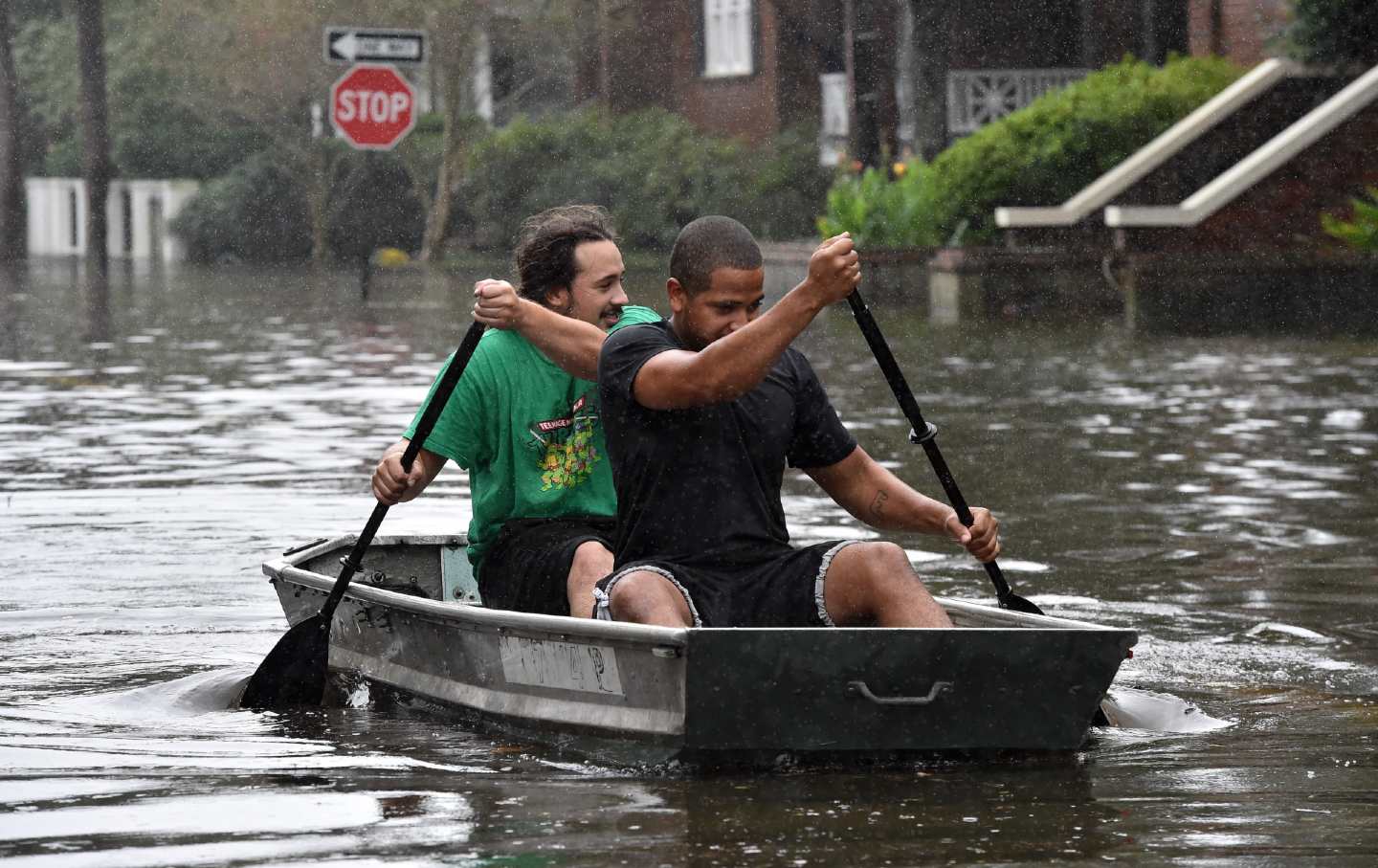
The Invisible Snakes of Climate Change The Invisible Snakes of Climate Change
Tony Bartelme’s new book shows how great storytelling can wake people up.
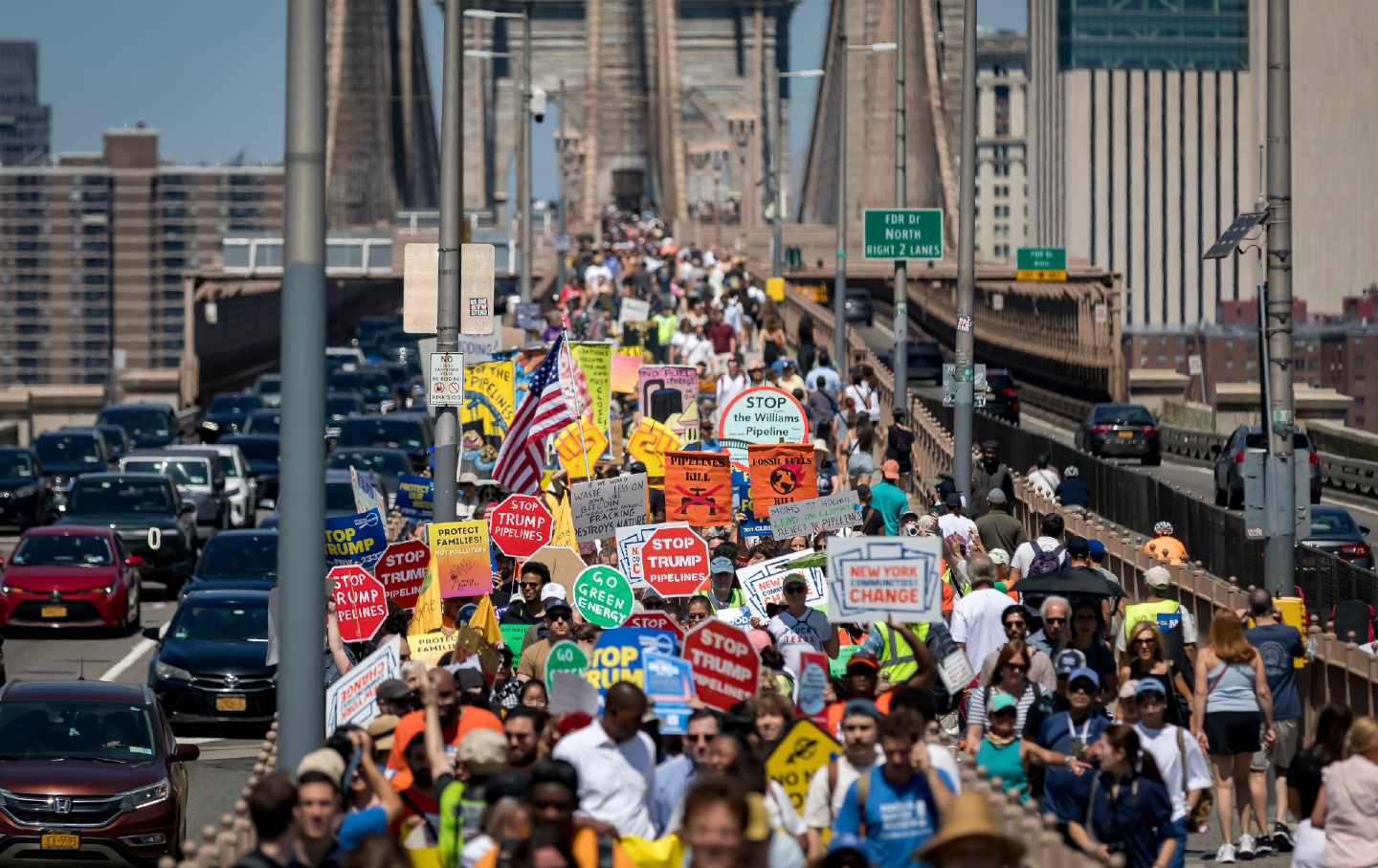
What’s Next for Covering Climate Now’s 89 Percent Project What’s Next for Covering Climate Now’s 89 Percent Project
An overwhelming global majority supports stronger climate action. Who are the people behind the numbers?

Can Solar Energy Save Us? Can Solar Energy Save Us?
Bill McKibben’s new book argues that sun power can displace fossil fuels.
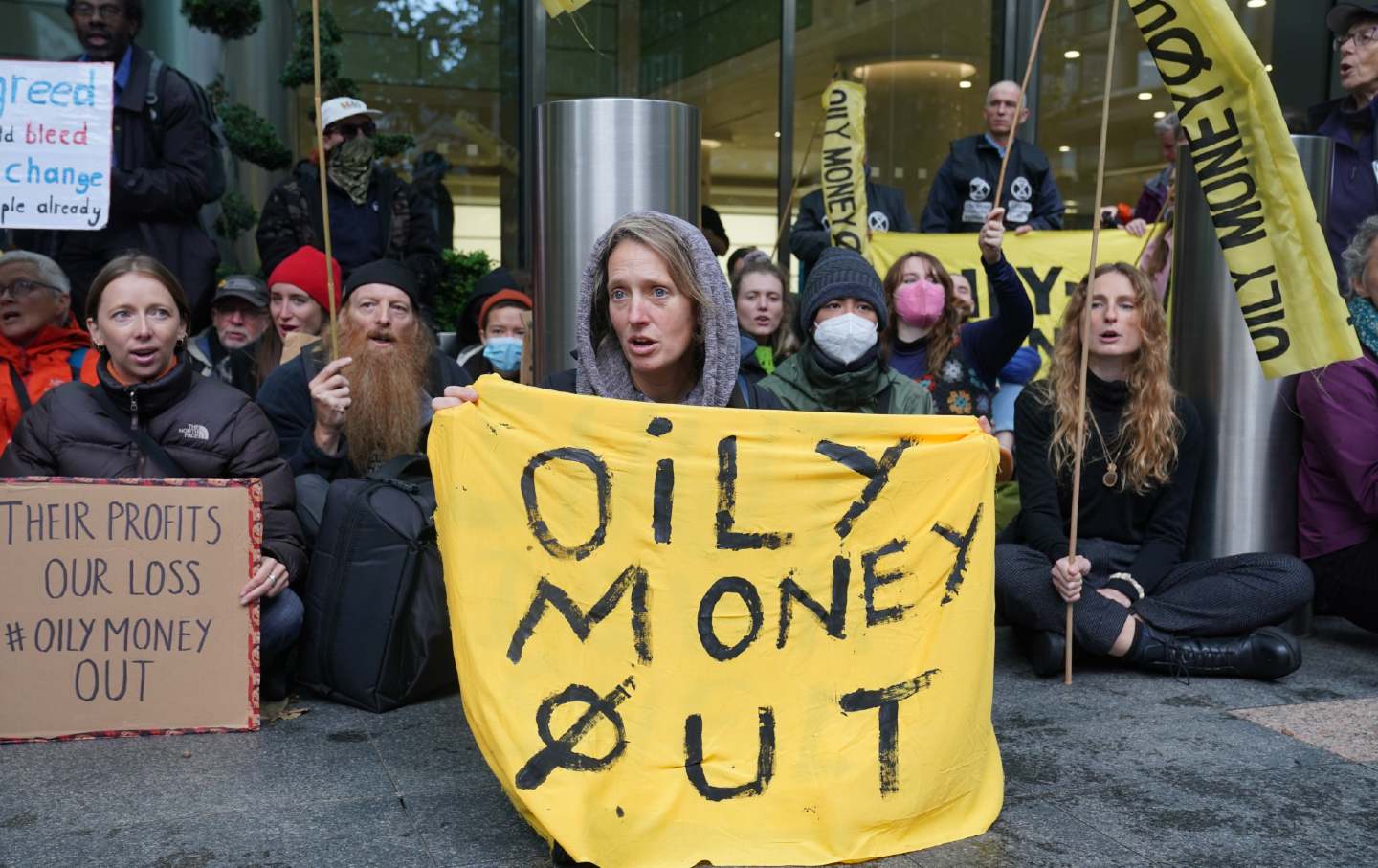
How Fossil Fuel Mad Men Have Aided and Abetted the Industry’s Climate Denial How Fossil Fuel Mad Men Have Aided and Abetted the Industry’s Climate Denial
But even the ad world isn’t immune to the groundswell of climate organizing.
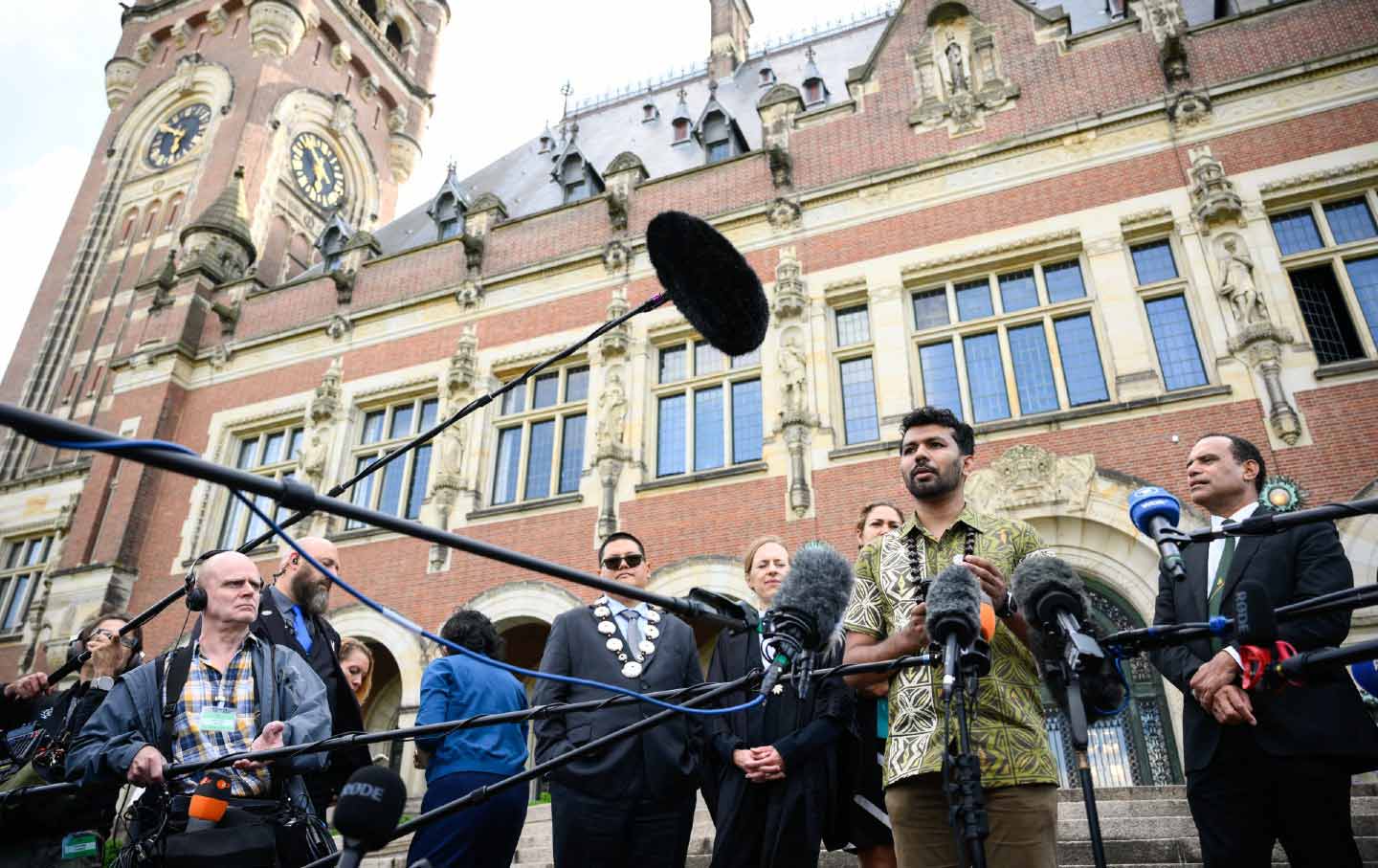
The World Court Adds Muscle to the Climate Fight The World Court Adds Muscle to the Climate Fight
After a “landmark” ruling from the International Court of Justice, journalists can expect more lawsuits against fossil fuel companies.
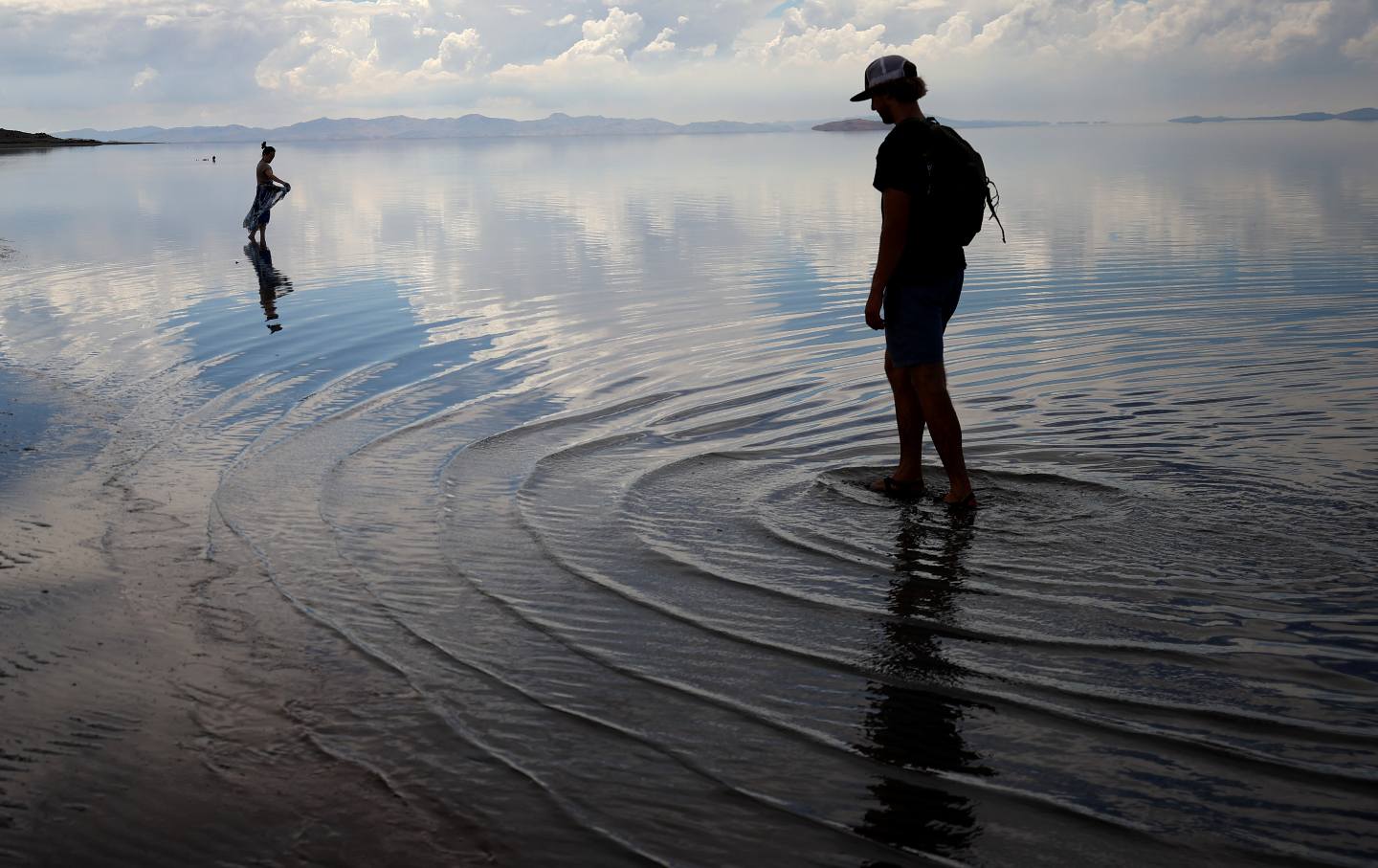
The Great Salt Lake Is a Ticking Time Bomb The Great Salt Lake Is a Ticking Time Bomb
Retreating water levels are exposing stretches of cracked, arsenic-laden lakebed in Utah. Future dust storms will carry an extra hazard.


